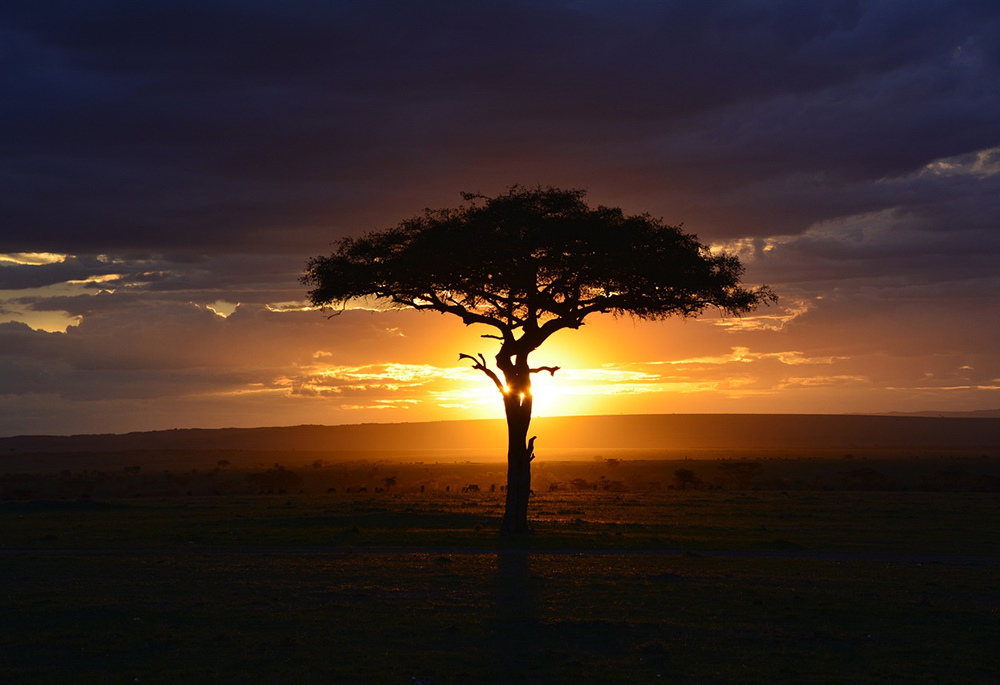
(Pixabay/Nicola Stockton)
Vision, according to the Cambridge Dictionary, is the ability to imagine how a country, society, industry, etc., could develop in the future and is able to plan in a suitable way. It is a view of the future.
A visionary is a person who possesses the ability to imagine how a country, society, industry, etc., will develop in the future, and can plan in a suitable way.
I have often noticed that the visionary is the one who suffers if the vision fails or is delayed, not the people associated with the vision.
The story of Joseph, the dreamer in the book of Genesis, has many parallels to the struggles of the Kenyan freedom fighters who fought for their land, people and freedom, in commitment to their integrity. In Joseph's story, his brothers were unable to understand the vision because the vision was intended for him alone. Joseph's journey reveals how he evolved from a favored son to a just and resilient man. His commitment to integrity led him from a cistern to a position of authority. Adversity and suffering molded Joseph's growth from a man previously tending his father's flock to a man with a just cause to defend.
Like Joseph and his unwavering commitment, the Kenyan freedom fighters demonstrated the same determination to defend their land, people and freedom. They faced the superior weapons of the Europeans as they fought for independence; some were disabled, others developed mental illness, and others lost their lives. What these courageous men and women gave their all for is now often taken for granted. If they were to rise and witness what is happening today, they might regret having fought for the freedom that is currently so widely abused in the country so dear to their hearts.
Most of the freedom fighters have now gone to their maker. To this day, many children of these freedom fighters live in abject poverty, without a place to call their own, while many children of those who betrayed them to the colonizers thrive in wealth and large parcels of land. I find this to be a profound irony, highlighting the sacrifices made by these resilient individuals. The Kenyan freedom fighters had a vision and fought for it, yet this vision wasn't understood by the people. Some fighters even sided with the colonizers, leading to conflicts where former allies fought and killed both the fighters and their families.
For the majority of Kenyans, who often hear the stories of the freedom fighters' victories long after the war, this precious privilege has sadly been taken for granted. Curiously, even the Kenyan government, since gaining independence, has conspicuously failed to appreciate the sacrifices of the freedom fighters, despite making grand promises in speeches during every Heroes' Day in the country.
Nelson Mandela dreamed of a free South Africa that both white and Black Africans would call home. He endured 27 years of imprisonment because he believed in his fellow men. He knew that every heart and every soul counts. Despite the sacrifices made by our great icon, Nelson Mandela, and many others to fight apartheid, South Africa still grapples with inequality today. Many South Africans do not really understand Nelson Mandela's vision; otherwise, the state of the government and life in South Africa would be more about equality than division. If they understood his vision, there would be less inequality today.
Advertisement
The visionaries of the past were incredibly brave and wise to pursue their visions despite the obstacles they faced. However, in today's world, even if a dream or vision was not originally intended for an individual, we may still need to learn and adapt in order to understand and help achieve that vision. This may require a great deal of effort and dedication, but it is better than abandoning the vision entirely.
Every parent's dream is to see their children grow up and become independent. Achieving this goal comes with a myriad of challenges, but parents focus on the end product rather than the means. I knew a man from my neighborhood who died in 2019, leaving behind a multi-billion dollar mega supermarket. Barely five years later, his sons began to fight about executive roles, resulting in the collapse of the family business! Similar stories abound, like collapsed hotels in Nakuru, where I live, shortly after the death of the sole proprietor. I often wonder — why is it that the beneficiaries cannot sustain the vision that was once dear and clear to the visionary?
It is important to not give up on a vision, even if one does not understand. As the book of Habakkuk says: "For the vision is a witness for the appointed time, a testimony to the end; it will not disappoint. If it delays, wait for it, it will surely come, it will not be late" (Habakkuk 2:2-3).







